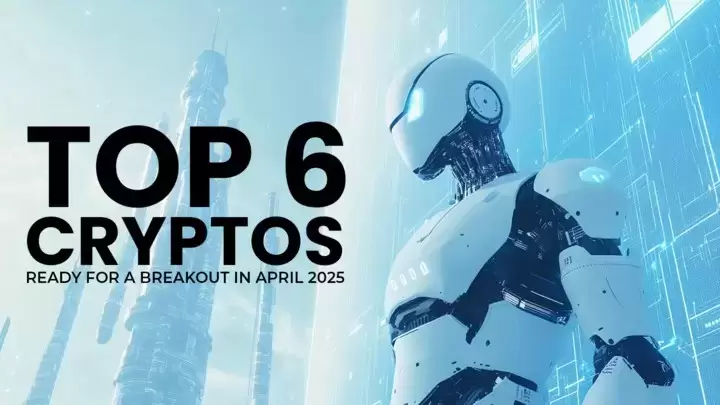 |
|
 |
|
 |
|
 |
|
 |
|
 |
|
 |
|
 |
|
 |
|
 |
|
 |
|
 |
|
 |
|
 |
|
 |
|
Cryptocurrency News Articles
Project Eleven Offers 1 BTC for Cracking Bitcoin’s Public Key, Raising the Post-Quantum Threat to Forefront of Discussions
Apr 18, 2025 at 01:59 am
Project Eleven is once again raising the issue of how resilient Bitcoin’s cryptographic foundations are in the era of quantum computing.

Project Eleven, a collective focused on exploring the boundaries of cryptocurrency and technology, is offering 1 BTC in an engaging and fundamental discussion about the architectural vulnerabilities of the most important crypto asset—and the possibility of experimentally confirming or denying the reality of the post-quantum threat.
As Project Eleven sheds light on a critical aspect of Bitcoin's resilience in the face of quantum computing, they highlight several key architectural choices that were made.
"The creators of Bitcoin opted for Elliptic Curve Cryptography (ECC) over traditional cryptographic schemes like RSA. ECC provides the same level of security as RSA but with much smaller key sizes, making it more efficient. A 256-bit ECC key offers the same security as a 3072-bit RSA key—a huge efficiency gain."
However, this begs the question of how resistant ECC really is if we eventually see a major breakthrough in quantum computing. Quantum machines, operating using qubits rather than classical bits, theoretically scale their computational power exponentially compared to traditional systems.
Why does this matter? Because even the most secure algorithm can eventually be brute-forced. With classical computers, even massive supercomputing clusters would require astronomically long timescales to do so—making the threat largely irrelevant in practice.
Quantum computers, at least in theory, could overcome this limitation. The moment this possibility was first conceived, the post-quantum threat became a serious discussion—not just for Bitcoin, but for the entire global encryption infrastructure. It's not difficult to imagine the chaos that could unfold if such a shift were to occur, and although the concern remains theoretical for now, it's being addressed with increasing urgency.
This is where the QDay Prize comes in—a 1 BTC reward offered with a deadline of April 6, 2026.
The mission: break the largest ECC key possible using Shor’s algorithm on a quantum computer. No classical shortcuts. No hybrid tricks. Pure quantum power.
Quantum computers are still in their infancy, but progress is being made. Major players like IBM, Google, and AWS are actively developing systems, and the industry is moving forward. Project Eleven offers several clarifications for participants:
* The BTC prize will be awarded in full to the first individual or team to completely factor the largest ECC key possible using only a quantum computer and Shor’s algorithm by April 6, 2026, at 00:00 UTC.
* The term "largest" is defined by the size of the prime factors of the key. For instance, a 256-bit key with 128-bit prime factors would be smaller than a 255-bit key with 128-bit prime factors.
* Only computations performed directly on a quantum computer will be considered valid for the prize. Classical computations, such as those used to generate primes or modular exponentiation, are permitted in preparation for the quantum computations but will not count towards the prize.
* A hybrid approach combining quantum and classical computations is also allowed, but the final factorization step must be performed on a quantum computer to be eligible for the prize.
* The complete factorization of the key must be submitted to Project Eleven by April 6, 2026, at 00:00 UTC to be valid for the prize.
This initiative from Project Eleven is sure to spark discussion and interest in a fundamental aspect of Bitcoin's architecture and the potential implications of quantum computing for the cryptocurrency industry and the world at large.
Disclaimer:info@kdj.com
The information provided is not trading advice. kdj.com does not assume any responsibility for any investments made based on the information provided in this article. Cryptocurrencies are highly volatile and it is highly recommended that you invest with caution after thorough research!
If you believe that the content used on this website infringes your copyright, please contact us immediately (info@kdj.com) and we will delete it promptly.
-

- Lee Jun-seok, the Reform Party presidential candidate, stated that Bitcoin (BTC) could be held as a part of the national strategic assets.
- Apr 19, 2025 at 03:45 pm
- Lee Jun-seok, the Reform Party presidential candidate, stated that Bitcoin (BTC) could be held as a part of the national strategic assets.
-

-

-

-

- Bitcoin (BTC) price will finish 2025 higher than its current price of around $85,000
- Apr 19, 2025 at 03:35 pm
- Macroeconomist Lyn Alden expects Bitcoin to finish 2025 higher than its current price of around $85,000, though she says it would have been much higher if not for US President Donald Trump's tariff announcement in February.
-

-

- SOL breaks past $136 after Canadian ETF launches and Coinbase infrastructure boost
- Apr 19, 2025 at 03:35 pm
- On April 17, Solana reached its highest price in weeks — $136. This was the first time it hit that level since late March. A 6% jump in just one day made it one of the top-performing coins at that moment.
-

-




























































